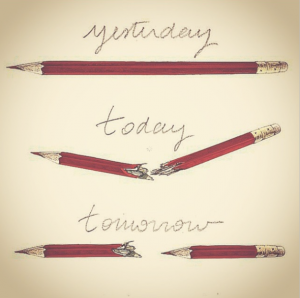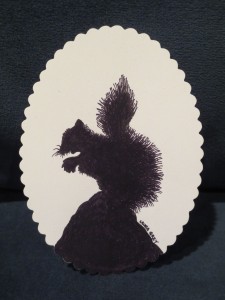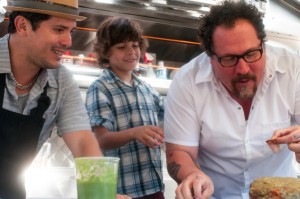Every large city has parks or plazas where people in difficulty congregate. Some go there to commiserate with others who feel down and out; others go there looking for escapes from their pain. Drug deals clearly take place in these parks; it’s not unusual to find drug paraphernalia scattered around in some of them. Of course, not everyone who frequents such parks goes to them to break the law; people who gather there are looking for different ways to feel connected with others, to pass the time, to lessen their boredom or frustration or pain.
I rarely see women in these parks. It is easy to imagine that the men who spend their time there often feel disenfranchised and powerless, so when they gather in parks or plazas they often posture in front of others, commenting on the women who pass through their midst, calling out to females in the cars that drive past and generally making us feel, if not unsafe, then at the very least uncomfortable. There is a noticeably macho atmosphere in such places, so showing respect to women is less common there than are displays of sexual attention and bravado.
In Seattle, there are several downtown parks like this where a woman walking alone during daylight hours might feel uncomfortable. When I walk past them I don’t feel endangered, just conspicuous. When women walk by, all eyes turn to us. The men there make comments when I walk by, just as they do to most women who pass within a half block.
Last weekend I was in the part of the city that gave the world the term “skid row”—what is now Yesler Way in the Pioneer Square neighborhood of Seattle was originally a “skid road,” a path along which timber workers skidded logs in the 19th century. This part of town boasts many attractive Victorian buildings converted into art galleries; it also has many bars and missions that serve the large numbers of homeless and poor people in the area. While I was in a Pioneer Square building, I became flooded with difficult memories. I was so overcome that I needed to walk outside to avoid drawing attention as my face crumpled and tears began to well up in my eyes. There was no nearby alley to duck into, no public restroom, no bench to sit on or doorway to enter that wouldn’t expose me to strangers who would notice my distress. But there was a park a half-block away, and I walked toward it in hopes of finding an open bench where I could sit for a few minutes until I regained my composure.
This park is an open plaza without much in the way of benches since public seating tends to encourage homeless people to look for a place to sleep, and city governments tend to discourage such behavior. The only place I could find to rest that wasn’t taken was a large flowerpot with a rim big enough to lean against. I saw that there were clusters of men in the plaza but I assumed that if they saw me with my head down they wouldn’t bother to speak to me. I was wrong. One tried to make conversation with me from a distance but I didn’t look up from my handkerchief. He sounded slightly offended when I didn’t respond, as if he thought I’d entered his territory and then hadn’t had the courtesy to acknowledge him. He came closer and made another comment, this one about my looks. It was not unkind but not what I wanted. I realized that I’d entered his turf and I was the odd one out in that situation, and that if I didn’t respond in some way I might attract more attention or hear negative comments about what might be seen as my arrogance or contempt. So I wiped my eyes and looked up.
I said, “Sorry, I’m having trouble today.” With that, he and another young man walked up to me and immediately said how sorry they were, and how they hated to see me crying. One walked close to me, and as he spoke I saw that he was missing his two front teeth. He couldn’t have been more than 25 years old; the other, taller man was about the same age. The toothless man said to me that he wished he could cry, but that he couldn’t anymore; he had clearly seen so much pain that he felt all cried out. I wiped my eyes and told him I was so sorry that he was hurting. He thanked me and nodded. I said, “There must be a lot of pain in this park, huh?” And he and his friend nodded and said, “Oh yeah, a lot of pain.” Then he said that I needed to know that things were going to be getting better, and that there were people who were going to be there for me, and he spread his arms wide, swooped in and gave me a big hug. I told him I wished things would get better for him soon and that I hoped he’d find comfort. Then he smiled and walked away, and his tall friend came closer. He said that he could see that I just needed to have faith, and that he could tell that things would be better for me soon, and he blessed me. I said “Thank you, sir, for your help. Bless you, too.” He said he was glad he could be there for me, and he wished me well as I walked away.
I keep thinking about those exchanges, and how for those moments in time, our ages, our races, our genders, our economic circumstances made no difference to us. These young men saw me hurting and came to comfort me. I acknowledged that their attention was kind, and they gave me respect and courtesy. They treated me not like an outsider who didn’t belong but as a human being who deserved dignity and help. In many places in this country they would be reviled and assumed to be thugs or criminals because of their appearance, but the men I spoke with were gracious and gentle. They’d seen trouble and understood sadness, and they didn’t judge me or assume that my difference in personal circumstances made me undeserving of sympathy. Our exchange was all about honoring the humanity and dignity in each other, recognizing that we have no right to judge what causes others pain, and that we can all do something to help others to bear their burdens. I felt a little embarrassed showing pain in their presence because it’s not hard to imagine that the circumstances of their lives have brought them more suffering and frustrations than I am ever likely to know. But not for one moment did I feel that they judged me unworthy of their compassion, nor did they ever show the slightest bit of disdain or outwardly assume that my troubles were less pressing than theirs.
These young men showed empathy in its purest form. They didn’t ask why I was sad; the reason didn’t matter. They didn’t need to figure out whether I was worthy based on my situation. To them I was worthy of help simply because I was a human being. They gave me, a total stranger, the most beautiful gifts they could: honor and compassion. Merely acknowledging the people around me in a public park elicited such kindness from them. I’m grateful that they were there for me and that they reminded me that my troubles were temporary, and that there are good people all around us.
At the end of Tennessee Williams’s play A Streetcar Named Desire, Blanche DuBois descends into madness, and as she is being led away to the insane asylum, she famously, pitifully says, “I have always depended on the kindness of strangers.”
Don’t we all?
Even those of us in penthouse suites or gated communities, ivory towers or walnut-paneled boardrooms depend on the social compact to keep strangers from breaking down our doors or threatening us on the street. To stay safe, warm, well-fed and employed and to get around and go where we must we depend on strangers not only to avoid harming us but to go out of their ways to help us do what we need to do. We worry about violence and tut over stories of criminal behavior that we hear on the news, but for most of us, being a victim of crime is an uncommon occurrence. We are sheltered, we are lucky, we are, most of us, trying hard not to hurt others or be hurt ourselves. We all depend upon the kindness of strangers. We just don’t realize how much effort is made by others every day to make room for us in a world that is more theirs than ours. We are each only one of seven billion, after all, and nearly all the others in this world have less invested in our health and happiness than we do. Yet, we we live alongside each other and make way for the needs of strangers every day.
This weekend two kind strangers proved how much invisible goodwill surrounds me. I was humbled by their kindness, but also elevated—by looking up into their faces I became part of something greater than myself. I felt disconnected and hollow when I walked into their park; they reminded me that even on Skid Row, one can find connection, beauty and mercy.




